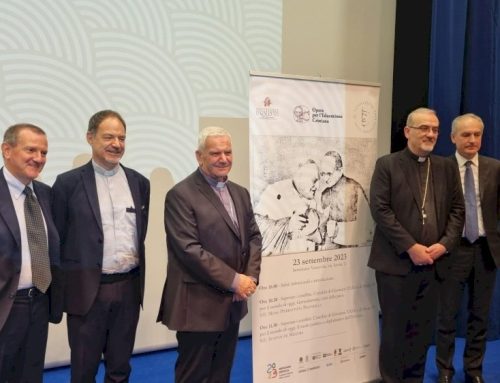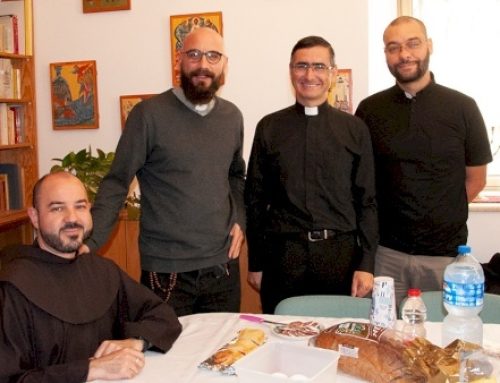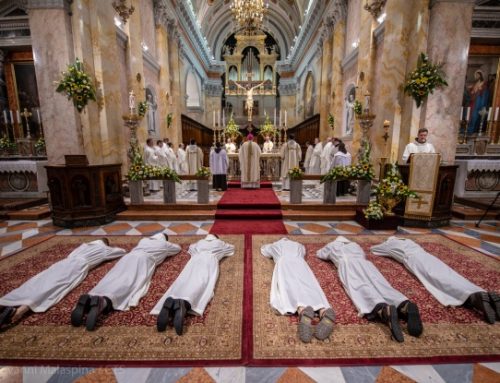Delegates at the HCEF morning session will not soon forget his [Philip Farah] moving testimony of a Palestinian Christian family’s tortured past.
Philip Farah of Vienna, Virginia, is a former English teacher at the Lutheran School in Ramallah and at Birzeit University. He was born in Jerusalem, and delegates at the HCEF morning session will not soon forget his moving testimony of a Palestinian Christian family’s tortured past. Philip had thumbed back through his late father’s diary to prepare for the talk, and he passed a framed photo of his father around as he quoted from entries in the old book.
It told of the flight of his family from Jerusalem, three days after the Deir Yassin massacre by Jews of Palestinians In 1948. The diary recalled the family’s return to Jerusalem a few years later, but of a second exodus in the 1967 conflict and of Phillip’s detention without charges, interrogation and severe beating by Israeli authorities in the mid 19705 when he was a teacher in Ramallah. He noted that Palestinians continue to emigrate today because of the economic strangulation of the occupied territories and human rights violations detailed at the HCEF convention. But, Philip recalled: “Jerusalem also has had moments of tolerance perhaps not as long lasting as the periods of strife. I’d like to close with taro of them, one very large and one very small: “When the Arab Sultan Saladin defeated the Crusaders and re conquered Jerusalem, he allowed Eastern Christians to live in and visit Jerusalem, and he invited the Jews back to their sacred city. Saladin was greeted across the Mediterranean ghettos as the new Cyrus, allowing the Jews back to the site of the Temple of Solomon.”
“The smaller incident involved my father. When we came back to Jerusalem after the 1967 war; the first time he and I crossed over to the western Jewish side, we passed through the Jaffa Gate, which had been closed before the occupation. The pain and suffering we had experienced as refugees was still fresh in our minds. As my father went through the Gate, he extended his hand and kissed a small object on the side of the gate. I asked him what he was doing, and he explained that it was a mezuzah, a tiny scroll of the Torah that pious Jews place on the side of every door. I was astonished: “Why are you kissing their mezuzah after what they’ve done to us?’ He barely turned, and said ‘We all worship the one God.’ I think he had the winning formula for Jerusalem.”
Alan Heil



